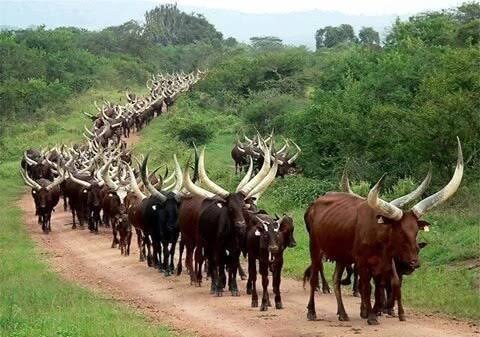Prof. Festus Ajayi, an animal scientist, has charged governors in the southern part of Nigeria to go beyond the banning of open cattle grazing and entrench ranching.
“The governors’ ban on open grazing is good, but it should be followed with the entrenchment of ranching,’’ Ajayi told the News Agency of Nigeria (NAN) on Tuesday in Ibadan.
Governors of the 17 states in southern Nigeria met in Asaba last Tuesday and pronounced a ban on open cattle grazing.
Six of them from the southwest had earlier made the same pronouncement when they met in Ibadan in February.
Open grazing of cattle has often caused conflicts between host communities and migrant herders, leading to several deaths in many states.
Some of the herders have also been accused of committing other criminal acts like armed robbery, kidnappings, and murder.
“The ban on open grazing may lead to more security problems if the governors fail to put alternatives in place to promote peaceful co-existence between farmers and herders.
“The massive influx of herdsmen from the northern parts and from neighbouring countries like Niger, Guinea, Senegal, Mali, Sudan, calls for attention,’’ Ajayi said.
He called for dialogue with the Miyetti Allah Cattle Breeders Association of Nigeria (MACBAN) to resolve any problem that might arise from the ban, insisting that no herder should bear weapons.
Southwest governors, MACBAN and security agencies met in Akure on Jan. 25 where night time grazing of cattle was banned.
The January meeting observed that underage herding was inimical to security and was also banned.
The Akure meeting was held on the heels of an order by Gov. Rotimi Akeredolu of Ondo State for herders to vacate forests in Ondo State and it condemned the occupation of the forests by herders.
It noted that MACBAN members had also suffered insecurity and kidnapping and that they must be protected as they desired peaceful coexistence.
“Government should not allow anyone to carry arms and ammunition; whoever does that should be punished under the law.
“Pastoralism has led to insecurity of lives, deaths and food insecurity,’’ Prof. Ajayi, an animal scientist at the Institute of Agricultural Research and Training, Ibadan, also told NAN.
According to him, last Tuesday’s ban will help to secure lives and property of people, and restore peace and harmony between farmers and herders.
It would also boost food production and livestock production, he said.
“The ranching system should be put in place in all the states; the states can even commercialise ranching.
“Livestock products and by-products of cattle and sheep kept in ranches are better than those of animals that had covered long distances in open grazing.
“With the ban, food security and malnutrition problem will be solved to a large extent,’’ the scientist said.
Ajayi added that ranching would provide increased job opportunities, boost economic activities and generate revenue for the states.

 Health & Fitness5 days ago
Health & Fitness5 days ago
 Aviation1 week ago
Aviation1 week ago
 Aviation6 days ago
Aviation6 days ago
 Aviation6 days ago
Aviation6 days ago
 Aviation6 days ago
Aviation6 days ago
 Aviation5 days ago
Aviation5 days ago
 Featured3 days ago
Featured3 days ago
 Crime3 days ago
Crime3 days ago

